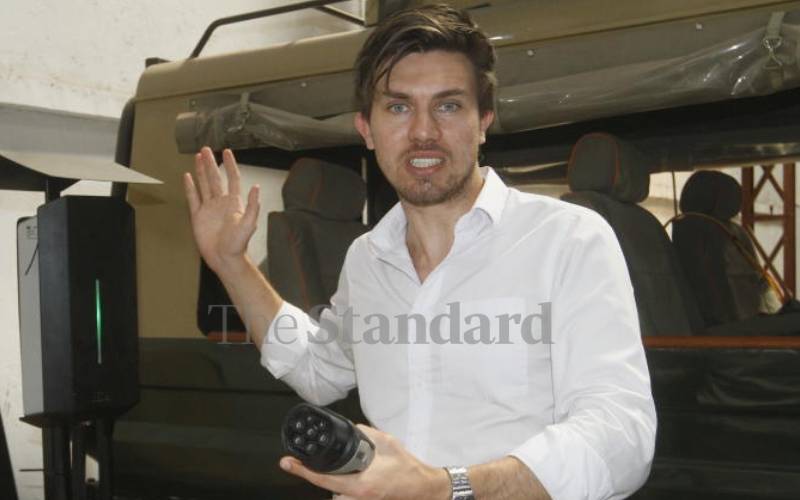Opibus' Filip Garoler explains how they wire cars to make them rechargeable at their workshop in Embakasi, Nairobi. [ Jenipher Wachie, Standard
×
The Standard e-Paper
Fearless, Trusted News

Opibus' Filip Garoler explains how they wire cars to make them rechargeable at their workshop in Embakasi, Nairobi. [ Jenipher Wachie, Standard
The transport sector in Nairobi has been blamed for the poor air quality due to emissions at traffic jams by diesel-run vehicles.